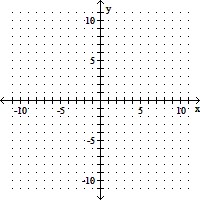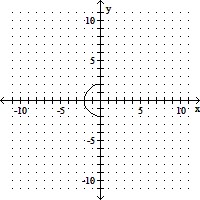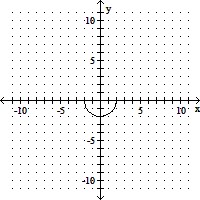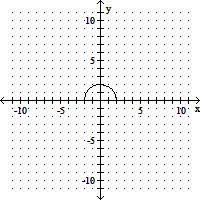Solve the problem.How many liters (L) of a 10% silver iodide solution must be mixed with 7 L of a 4% silver iodide solution to get a 6% solution?
A. 3.5 L
B. 7.0 L
C. 2.5 L
D. 4.5 L
Answer: A
You might also like to view...
Find all the first order partial derivatives for the following function.f(x, y, z) = e(sin (x) + yz)
A.  = cos(x) e(sin (x) + yz);
= cos(x) e(sin (x) + yz);  = ze(sin (x) + yz);
= ze(sin (x) + yz);  = ye(sin (x) + yz)
= ye(sin (x) + yz)
B.  = cos(x)e(sin (x) + yz);
= cos(x)e(sin (x) + yz);  = e(sin (x) + yz);
= e(sin (x) + yz);  = e(sin (x) + yz)
= e(sin (x) + yz)
C.  = e(sin (x) + yz);
= e(sin (x) + yz);  = ze(sin (x) + yz);
= ze(sin (x) + yz);  = ye(sin (x) + yz)
= ye(sin (x) + yz)
D.  =
=  e(sin (x) + yz);
e(sin (x) + yz);  = ze(sin (x) + yz);
= ze(sin (x) + yz);  = ye(sin (x) + yz)
= ye(sin (x) + yz)
Identify the fraction as a proper fraction or an improper fraction.
A. Improper fraction B. Proper fraction
Graph.f(x) = - 

A. 
B. 
C. 
D. 
Solve.A rectangular box with volume 468 cubic feet is built with a square base and top. The cost is $1.50 per square foot for the top and the bottom and $2.00 per square foot for the sides. Let x represent the length of a side of the base in feet. Express the cost of the box as a function of x and then graph this function. From the graph find the value of x, to the nearest hundredth of a foot, which will minimize the cost of the box.
A. 8.44 feet B. 8.63 feet C. 8.55 feet D. 7.92 feet